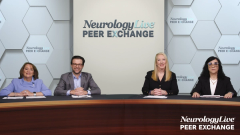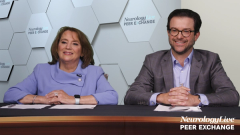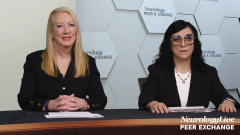
Cost Savings with Biosimilars and Use in Multiple Sclerosis
Advanced practice providers discuss potential cost savings with biosimilars and biosimilar use in multiple sclerosis.
Episodes in this series

Amy Perrin Ross, APN, MSN, CNRN, MSCN: Thinking about immunogenicity and where that all fits in with our clinical practice, how could biosimilars potentially provide lower prices and cost savings not only to the payers but to the patients? Are you aware of any copay assistance programs that are available for biosimilars?
Patricia Melville, RN, NP-C, CCRC, MSCN: Yes. Even though you and Aliza both mentioned the process to get biosimilar approved, it is a lengthy process, but it’s not nearly as lengthy as the reference product. It may be 5 to 9 years; it might even be a decade. A lot of the reference products have been in various stages of trials, both phase 1, phase 2, and phase 3 for sometimes 2 decades and even 3 decades. So they are less expensive to produce. One is hopeful that this would then translate to decreased cost to the payers and to the patients and, of course, then increased access, but that’s a whole other discussion that we’ll have a little bit later on.
There is a bit of a model in oncology. They have quite a few biosimilars available in the world of oncology. These are drugs that are available to patients with various copay assistance programs, free drug programs, and traditionally, and in oncology and MS [multiple sclerosis], the pharmaceutical company will donate money to an independent charitable organization and then patients can apply for grants and get a reduced cost of their drugs. I anticipate that that will happen also as we see biosimilars become available in MS.
Amy Perrin Ross, APN, MSN, CNRN, MSCN: You bring up a good point, Pat. That is one of the things that goes into my prescribing habits, is the presence or availability for a copay assistance program. I’ve got many patients in my practice who are indigent, many who are medically indigent. The fact of the matter is, without some of these copay assistance programs, no matter what I want to give the patient, they won’t be able to afford it. So maybe my second or third choice, but the issue is the copay programs are important, certainly for me. I’m glad to hear that there’s a precedent for that in the oncology world because that’s, I think, where the precedent currently is in terms of the use of biosimilars. Any thoughts about cost savings from you, John, or where that would fit in with your thoughts about prescribing?
John Kramer, PA-C: I agree with everything that Pat said, and I think that it’s clear that these foundational assistance programs for patients with MS are limited resources available on an annual basis. Those are replenished commonly on an annual basis, but with the advent of biosimilar medications for MS, that might allow that foundational money to actually get expanded for just a little bit longer for these patients and allow them to appropriate immunotherapy.
Amy Perrin Ross, APN, MSN, CNRN, MSCN: That certainly is our hope. As we wrap up this part of our discussion, Aliza, if you could address where do you see biosimilars being used in MS clinics and which unmet needs might biosimilars fill in MS?
Aliza Ben-Zacharia, PhD, DNP, RN, ANP-BC, FAAN: I think that biosimilars can be definitely prescribed to patients once they’re approved and show similar efficacy, similar safety, and similar immunogenicity. I think that’s the key goals that we [are] actually facing, and we all discussed it earlier. That probably fits the indication of the biologics. So biosimilar follow the indications, whatever was proven by the randomized control trial or versus placebo versus comparable. It will be important to follow that lead of the biologic because if some medication were approved for CIS [clinically isolated syndrome] and relapse in remaining MS, that’s where the biosimilar should be indicated as well.
I think that it’s important to think about safe switcher. How can we switch and look at study? We have mentioned it earlier about the switches and we learned from other diseases because we do not have data about biosimilar and MS. So we have to think. Amy mentioned earlier the autoimmune disease and as well Pat and John. I think other autoimmune diseases have some similarity with MS and a lot of differences, but I think we’re learning from RA [rheumatoid arthritis] and IBD, inflammatory bowel disease, and thinking [about them], [for] example, the Cohen study. I’ll really show that about 90 study with 7 different aging and 14 diseases did not find any differences in immunogenicity or safety and efficacy. It tells us that in clinical practice we have room to switch sometimes from the biologic to the biosimilar.
Another study, Real-World, that was an open label, but it showed real-world evidence. It was about using infliximab biosimilar in patients with Crohn disease, ulcerative colitis, RA, and psoriasis. The extension study showed that there was no differences between the biosimilar medication and the real biologic in relation to efficacy and safety supporting switches. This study did not really look at immunogenicity. I think it’s important that every study that’s comparing the biosimilar to the biologic ought to have the efficacy, safety, and immunogenicity profile to make sure that we can use it in clinical practice with our patients, either newly diagnosed or patients with longer disease. Again, following the indication that [is] supported by the biologic.
Amy Perrin Ross, APN, MSN, CNRN, MSCN: Indeed. John or Pat, do you have anything to add to that?
Patricia Melville, RN, NP-C, CCRC, MSCN: I don’t think so. I think you were very thorough, Aliza.
Aliza Ben-Zacharia, PhD, DNP, RN, ANP-BC, FAAN: Thank you.
John Kramer, PA-C: I’ll add something to the discussion. I appreciate the review and I think that in the world of MS, clinicians used to be the tip of the spear as it relates to drugs with different and newer or even new mechanisms of action. I think what is reassuring from the data that you just reviewed is that there have been other disease states with biologic agents that have gone before us. That these biosimilars have been approved through a regulatory framework that already exists. I think it’s going to be something that we’ll have more confidence in and be able to educate not only our patients, but our staff members as well.
Transcript Edited for Clarity
Newsletter
Keep your finger on the pulse of neurology—subscribe to NeurologyLive for expert interviews, new data, and breakthrough treatment updates.













